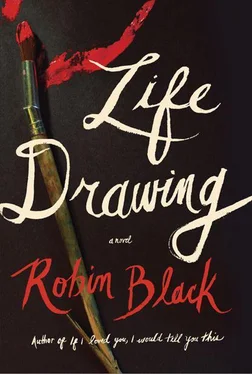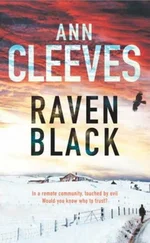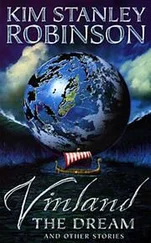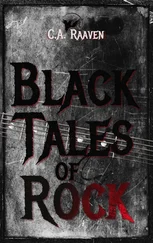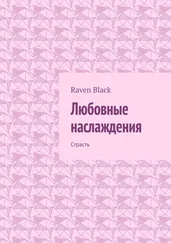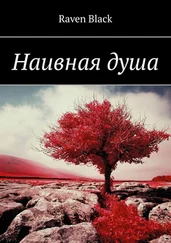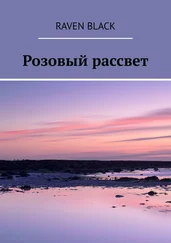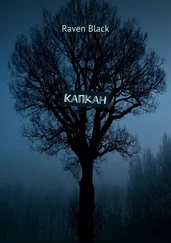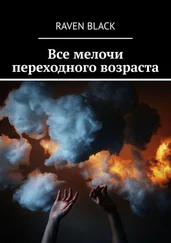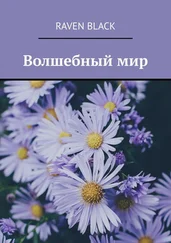While I am peering down at herbs, Owen is in the barn, writing — or trying to. For months now, he has been that weary back that won’t cooperate. He imagines that his prose has wandered to a distant acre of our universe, curled up and died. He still spends days inside the barn but he comes out looking grieved. I feel this ache all the time, though my own work is going well, and it is probably this that has made me wander out into the garden, into the day, so horribly hot. I am restless for him. I am restless as part of him.
The basil I am eyeing with such irritation is rampant. The air smells of it and of lavender. Owen and I are enthusiastic, ignorant gardeners. We are inadequately attentive. We are perpetually amazed. We are innocents to nature, stupefied by its every trick. Even as I am annoyed with myself for letting the basil go to seed, I am also in awe of it. Magic! These beings that continue to grow, that know what to do next, and next, and next.
“Halloooo …”
I am not alone.
First, a British voice. Then a small woman in a violet sundress. With a mop of gray curls. “Alison Hemmings,” she says, her hand outstretched long before I might reach it. “I’ve just rented the house across the way. I’m so sorry if I’m here at a bad time …” A smiling face. Round cheeks. A firm grip. Startling light gray eyes, almost silver to match her hair.
No one during our time has lived in the house next door, the only building within sight of our home. I have stopped thinking of it as having an interior. It has become solely a shabbily beautiful façade.
“Gus Edelman,” I say. “Augusta, really, but Gus. Welcome.”
My voice is riddled with question marks; and then I remember that I am only in a bra. Folded in among the thoughts of a neighbor is the thought that the bra, which is purple, may pass for a bathing suit; then the thought that it serves her right, barging in — though she hasn’t really barged in. Then the thought that it’s too late to say anything about my bra. We have absorbed the fact of it already. We have moved on.
“It’s so lovely here, isn’t it?” she says.
“Yes, it is,” I say. “Can I help you out in some way?” It isn’t quite right, I know. I sound like a salesperson at the end of the day hurrying to close the store.
She tells me she is leasing the place. “At least through September,” she says. “Maybe beyond. Depending on how things go.”
“I hadn’t realized they were renting it out.”
The owners, a young couple who inherited the property from distant family, have only ever visited once, maybe eighteen months before. They walked the land, several acres, had seemed to be arguing and then had driven off, never to return.
“You haven’t seen the advert?” she asks. “Because you’re in it. You and … is it your husband?”
I shake my head, frowning. “I had no idea …”
“On one of those rental sites. One of the features is the couple who lives next door. The writer. The painter.”
“Oh. How strange. They never mentioned …”
She smiles. “I promise not to be a pest, but it did make the setting more appealing. I’m actually a painter too. And somehow the notion of a creative enclave … plus I figured if the ad mentioned you, you probably weren’t axe murderers.”
“Not recently,” I say. “Not me, anyway.” As we speak, I decide she’s only a few years older than I, despite the gray hair. Early fifties. We look at one another a bit more, awkward, until she says she should be getting back to her unpacking. I tell her please to let us know if we can help her settle in, but I don’t say it with much enthusiasm and as she steps away I lean down to pick some of the leggy basil, as though she has caught me in the middle of an important, pressing task.
“Many thanks,” she calls back. “So good to meet!”
When I’m sure she’s gone, I straighten up, my hands full of basil stems. I look toward the barn, and think of going there. A new neighbor is big news. But then I decide it can wait. Owen needs to be left alone to push the rock back up the hill. And I too need to get back to work, so instead of turning left, I turn right and go inside.
We’d moved into the farmhouse nearly three years before, after Owen’s Aunt Marion died, surprising us by leaving a small fortune. Very small. But still, a fortune to us. It was enough money that we could think hard about what changes we wanted to make in our lives, enough money that we could afford to make changes without thinking too hard. For the first time in forever we had a safety net. We’d always talked about living the country life in a maybe-one-day kind of way, but once it was possible, we started to get serious, checking real estate online, driving beyond the suburbs to explore houses that we knew within seconds we would never want to own. Too new. Too obviously designed for families of four. Too close to other human beings.
But then we found the farmhouse, and as buyers we were sold right away. Built in 1918, it was exactly the kind of lovely we’d been looking for. We saw it first on a breezy day in May when the land shimmered with every leaf imaginable, from ground to sky. I thought we’d stumbled onto the hidden spot in which the universe tested out its most exquisite shades of green. The pond, perfectly round, had a fairy-tale look, frog princes poised to set themselves on its edge. I have fallen in love very few times in my life, and once was with those seven acres, our home, on that day.
I wanted to live there. I wanted to paint every vista.
Owen could write in the stone bank barn once we ran electricity, and I could set up a studio in the enclosed porch, with its windows on three sides. There was work to do, of course. The kitchen, set back in the house, was a horror show, its only saving graces a beautiful worn terra-cotta-tiled floor and the old glass-paned door out to what would become our garden. The roof was a joke — like the old dribble glasses, designed to leak. But the house itself was dirt cheap and we had more than enough money to fix it up.
Our friends back in Philadelphia, incurably urban, thought we were mad, and we both rather enjoyed that part. In our crowd it was hard to latch onto any eccentricity no one else had yet claimed. Overnight we became oddballs, objects of affectionate eye rolling and shaking heads. They’ll be back in a week . We had set ourselves apart from the crowd. And in some other sense, some entirely literal sense, that was exactly what we needed to do.
Neither of us acknowledged that our move had anything to do with my infidelity two years before. It had been some months since our City Hall ceremony, the ritual that was to have been the punctuation-mark ending to the whole episode. But that didn’t mean the betrayal wasn’t a lingering presence in our lives, a taunting little goblin in the shadows, daring us to call him out.
For Owen, I knew, there were reminders everywhere. When I’d confessed to him, I had confessed fully — with all the misguided passion of one who believes that she is cleansing herself and forgets that she may be staining the listener. Owen became the man who knew too much. He carried in his head a map of meeting places, of locations where we might run into Bill. He could envision us slipping into this dim café, slipping out, a few minutes apart, from this hotel. He knew how to drive from our home to Bill’s. He knew where Bill’s law office was.
I always half believed that Owen would have an affair one day himself to restore balance of a kind. In certain moods, dark moods, I even believed he was entitled, though the thought of it was hideous to me. Sexual jealousy. Emotional jealousy. I couldn’t bear the prospect of going through what he had gone through. (What I had put him through.) But a part of me believed that it was only fair. A part of me thought maybe it would set us right again.
Читать дальше
